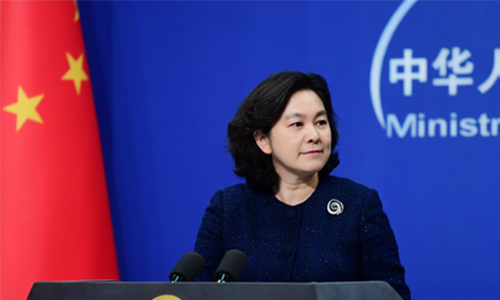
Foreign Ministry spokeswoman Hua Chunying Photo: fmprc.gov.cn
China's position on the east sector of the China-India boundary, or Zangnan (the southern part of China's Tibet), is consistent and clear and China has never recognized the so-called "Arunachal Pradesh" illegally established on the Chinese territory, Chinese Foreign Ministry stressed in response to Indian media's hype of China's construction of a village in a "disputed area."
China's normal construction on its own territory is entirely a matter of sovereignty, Foreign Ministry spokesperson Hua Chunying said on Thursday's routine press conference.
Indian media hyped China's construction of a village in a "disputed area," saying the construction was built within Indian territory, which New Delhi is concerned about.
Chinese experts said the move stirs
anti-China sentiment, as the construction occurred within Chinese territory and serves the right purpose of improving lives of border inhabitants.
The Indian media reports were "a blatant attempt to stir up troubles on the China-India border," Zhang Yongpan, a research fellow of the Institute of Chinese Borderland Studies of the Chinese Academy of Social Sciences (CASS), told the Global Times on Tuesday.
"The report distorts facts, which jeopardizes the two countries' efforts to maintain peace and tranquility in the border areas."
So-called "Arunachal Pradesh" was founded illegally in the last century and occupies about 90,000 square kilometers of Chinese territory.
The area has never been recognized by the Chinese government and Chinese ethnic minority groups such as the Moinba, the Lhoba and Tibetan people live in the area.
"The Tsari region mentioned by Indian media is an important pass leading from the Himalayas to the southern mountain regions. It belongs to China, and India has been coveting this area. Indian media's provocation shows the country aims to continue its ambition: constantly provoke disputes and advance toward the Line of Actual Control area," Zhang said.




